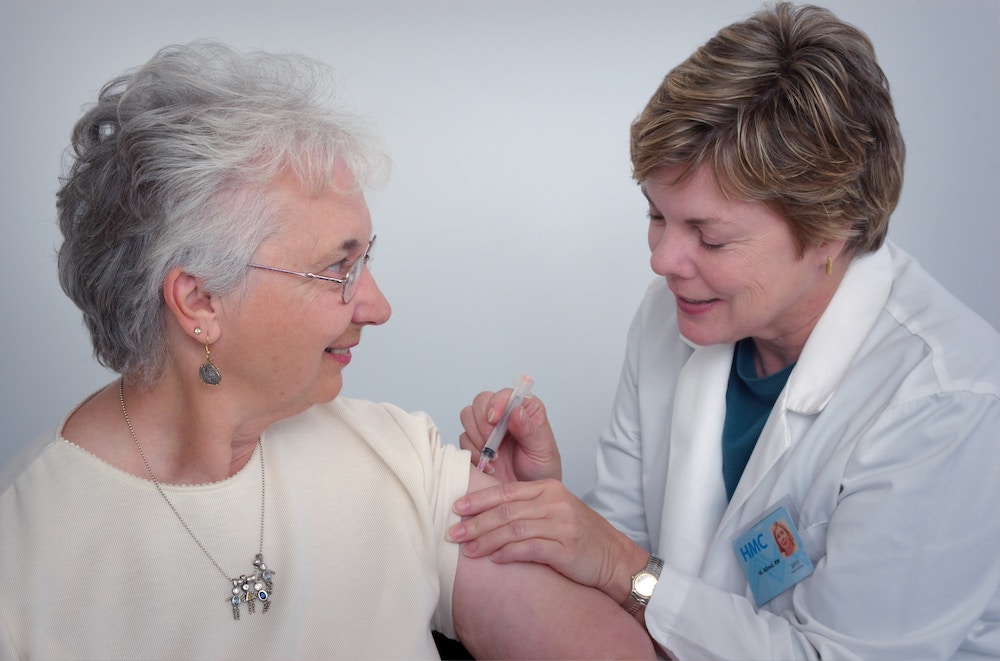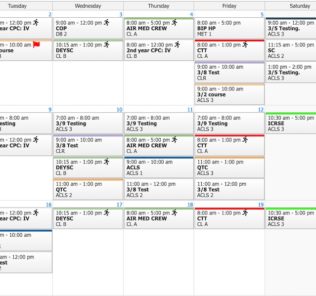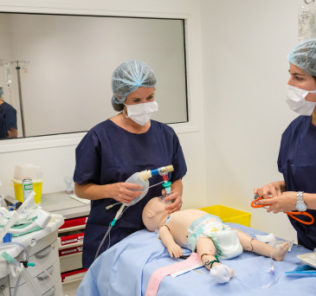Strategies for Improving Vaccination Education Through Simulation
The team from Pocket Nurse recently shared a fantastic resource for utilizing simulated medications for vaccination education to nursing students. They acknowledge that while “educating students to administer vaccinations is a regular part of nursing and pharmacy curriculums”, could there be more “strategic ways that [such] teaching methods can be improved?” As healthcare professionals we have all encountered a recent increase in public fear about the outcomes of vaccination, one that should obviously be addressed early and often in a new Nursing student’s education. With the opportunity to role play with standardized patients and perform actual injection skill demonstrations with safe and simulated medications, we can better prepare today’s nursing student for the foreseeable challenges of their career.
Parental Concerns About Vaccinations Are Real
In a 2011 study by the U.S. National Library of Medicine, 77% of parents polled stated concerns about one or more childhood vaccinations. In a modern clinical setting, proper vaccination technique must involve more than just the injection procedure. Students must be prepared to address the concerns that many parents will display when it’s time for their child to receive an immunization. Consider employing these tactics in the classroom to make sure that students can effectively and accurately express the safety and importance of vaccines:
Sponsored Content:
- Arm students with facts: Most parents respond positively to facts, presented to them in a calm and reassuring manner. The Centers for Disease Control and Prevention (CDC) offer several fact sheets and articles explaining the ultimate safety of vaccines. Point your students toward these resources so that they are prepared to share them with future patients and family members.
- Prep students for unexpected reactions: Although students are likely to be well-versed in the science behind various vaccines, their patients likely will not be and may have valid concerns. It’s crucial that students respond to these concerns with compassion, empathy, and patience, expressing that the ultimate goal of the healthcare provider and the parent is the same – patient safety and well-being.
Encourage Vaccine Compliance
- Build trust: Listen carefully to what questions parents are asking, and provide balanced answers. If parents are confused about vaccine safety or side effects, be sure to give them correct information while acknowledging that their feelings of concern are valid. Remind parents that vaccines are safe, they prevent potentially serious diseases, and not vaccinating carries serious risks for their children.
- Use anecdotes as well as science: Some parents will be reassured by the science that overwhelmingly supports the safety and effectiveness of vaccines. Other parents will want personal stories about why they should vaccinate. Healthcare providers can mention their own experience vaccinating their children, or use anecdotes from the healthcare practice. For example, mention that in the thousands of shots administered, the most serious side effects reported to you have been soreness at the injection site or a mild fever.
- Don’t take it personally: Parents who express concern about vaccination aren’t trying to challenge or offend you! They truly want to do what is best for their children, and with the overwhelming amount of information available to them, it can be difficult to parse what that is. They are asking you questions because they are depending on you to reassure them, provide the correct information, and keep communications open.
- Use authority to your advantage: Parents respond better to what is called the presumptive approach, rather than a participatory approach. When it is stated what types of vaccines the child is to receive at a well-child visit, most parents accept immunization. Parents trust in the expertise of their children’s healthcare providers.
Utilize Simulated Demo Dose Supplies To Improve Learning By Doing
The following simulation supplies from Pocket Nurse can add a realistic, hands-on component to a classroom segment on administering vaccinations:
- Demo Dose Inject-Ed Pad
- Demo Dose simulated vaccines
- Pocket Nurse Syringes with Needles
By utilizing a combination of these supplies brings life-like practice into the classroom without risking mistakes being made on actual patients. After students have practiced their injection skills and mastered all steps to a safe immunization, they can look forward to their clinical rotation with increased confidence and experience. See these Demo Dose products & more in the amazing digital “Simulation and Healthcare Education Catalog” from Pocket Nurse online above.
Sponsored Content:
Reasons for Using Simulation
- Low risk, high reward: Healthcare simulation scenarios do not put real people and actual patients at risk. Yet they do accurately represent challenges that students will face in the real world. In addition, simulated scenarios protect healthcare workers as they learn to navigate unique situations. Simulation provides students the freedom to make mistakes and learn from them.
- Accurate assessment and evaluation: Testing in education is always an important way to assess how students are doing in terms of knowledge retention. Of course, pen-and-paper testing will always have its place, but testing in simulation can provide a different level of assessment of student knowledge and skills. Educators are able to provide a more detailed review of students’ efforts and actions in simulation as well. Controlled simulations enable step-by-step reviews immediately after the scenario, making clear what areas need improvement.
- Customization: With simulation, educators have the flexibility to structure lessons and learning scenarios to several levels of student. Beginners can start building “muscle memory,” which will help them advance their focus toward more demanding aspects of patient care. Intermediate and expert learners can grow their learning beyond simple simulations into more challenging and ever-developing areas of technically advanced healthcare.
Pocket Nurse is a nurse-owned-and-operated company that specializes in medical education and simulation technology solutions. Pocket Nurse fully advocates for and support medical education via their simulation products. Their line of simulated medication, Demo Dose, familiarizes nursing and pharm tech students with medication appearance, dosages, and indicated usages. Their manikins and trainers educate EMS personnel, nurses, and allied health professionals such as phlebotomists, by simulating the look and feel of patients.
Visit Pocket Nurse’s Website for More About Demo Dose!
Lance Baily, BA, EMT-B, is the Founder / CEO of HealthySimulation.com, which he started in 2010 while serving as the Director of the Nevada System of Higher Education’s Clinical Simulation Center of Las Vegas. Lance also founded SimGHOSTS.org, the world’s only non-profit organization dedicated to supporting professionals operating healthcare simulation technologies. His co-edited Book: “Comprehensive Healthcare Simulation: Operations, Technology, and Innovative Practice” is cited as a key source for professional certification in the industry. Lance’s background also includes serving as a Simulation Technology Specialist for the LA Community College District, EMS fire fighting, Hollywood movie production, rescue diving, and global travel. He and his wife live with their two brilliant daughters and one crazy dachshund in Las Vegas, Nevada.
Sponsored Content:


















